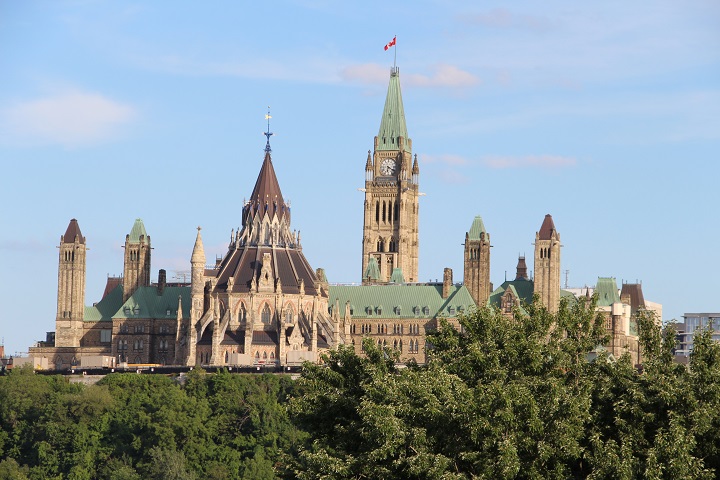On Oct. 26, Governor General Mary May Simon swore in Prime Minister Justin Trudeau’s new cabinet. As Canada faces its second consecutive Liberal minority government, the cabinet will become a focal point of debates over the future of the nation. Notably, Trudeau appointed Member of Parliament (MP) Anita Anand to one of Canada’s most prominent portfolios, the ministry of National Defence, and MP Steven Guilbeault, former leader of Greenpeace Quebec and co-founder of Équiterre, to the ministry of Environment and Climate Change. These two appointments rankled observers, who questioned their qualifications for their roles. Regardless of an observer’s political leanings, such comments on Anand and Guilbeault’s resumés deflect from the meaningful policies the Canadian public should push these ministers and the Liberal government to enact. These criticisms, though, relate to a pattern in hiring and protection at universities, in which departments overlook and mistreat those who challenge systems of power, favouring instead those who conform to institutional expectations.
Anand, the former Minister of Public Services and Procurement in charge of Canada’s vaccine rollout, faced both widespread acclaim and criticism from foreign and domestic news sources following her appointment. A now-retitled National Post article announced her appointment by merely stating that “a woman” would replace former Minister of National Defence Harjit Sajjan. More serious criticisms come from those who highlighted Anand’s lack of military experience, calling her a military “outsider.” Anand herself addressed the optics of her appointment by acknowledging both her position as the first female defence minister since Kim Campbell and her expertise in governance, process, and law. The Canadian Armed Forces is rife with sexual assault and harassment, with countless women and members of the 2SLGBTQIA+ community encountering a hostile environment within the service. It is surprising, then, that critics would have preferred an official with military experience given the fact that previous ministers with extensive training, including Sajjan, have turned their back to allegations of sexual violence. Anand’s fresh outlook, proven expertise, and extensive legal training should be welcomed in supporting not just the safety, security, and freedom of those serving in the armed forces, but of all Canadians.
Guilbeault, the former Minister of Heritage, experienced diametrically opposite reactions from Quebec and Alberta. Many Quebecers, still upset at Trudeau’s choice to snub Guilbeault of Environment in the last cabinet appointment, were cautiously optimistic to see their climate hero rise to a position of influence. Alberta politicians suggested otherwise, with Conservative Premier Jason Kenney attacking the minister’s “radical activism’” and former New Democratic Premier and current Leader of the Opposition Rachel Notley marking his troubling past statements about oil. A photo of Guilbeault getting arrested while wearing an orange jumpsuit after a climate protest also made rounds on social media. To attack a politician for their previous activism is to silence current activists who apply public pressure on leaders, especially on such urgent issues supported by a majority of Canadians, like mitigating climate change. If the political arena becomes sealed off to civilian activists, politics will return to the traditional, backdoor status quo procedures that only serve to protect the interests of privileged Canadians.
Likewise, at McGill, when scholars speak out about divestment, racial injustice, and human rights—issues many of McGill’s esteemed scholars have vast academic and practical experience in—they receive less protection than anti-2SLGBTQIA+ scholars. Instead, they often encounter doxxing, unequal tenure opportunities, and roadblocks to promotion. At the University of Toronto’s International Human Rights program, a recent donor-influenced decision to withhold hiring noted academic Valentina Azarova because of her work critical of Israel presents a too-often occurring phenomenon in the modern university. For scholars, neglecting current issues would be cataclysmic––an arrest of all critical reimaginings of this profoundly unjust world.
Of course, Anand and Guilbeault should not be glorified above other Canadians or ministers. In an increasingly centralized Canadian political system, where the Prime Minister’s Office wields immense power over ministers, Canadians must seek out their allies and hold them responsible, just as Anand and Guilbeault must hold the military and fossil fuel corporations accountable. The same must be stated of the McGill administration, wherein the expansion of Gender, African and Black, and Indigenous studies must proceed hand-in-hand with feminist, anti-racist, and decolonial practices. When this happens, scholars, students, and politicians can do their best, most authentic and transformative work.









